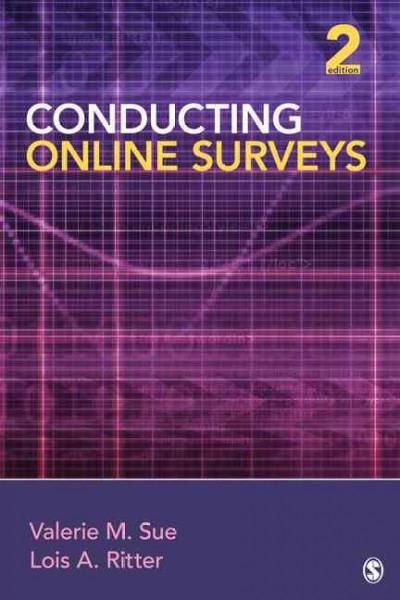Question
A discussion of what still needs to be explored in the field of psychology in order to more adequately address these problems. Grief and Loss:
A discussion of what still needs to be explored in the field of psychology in order to more adequately address these problems. Grief and Loss:
Freudian Approach: Freud's psychoanalysis theory suggests that grief and loss can be understood through the concept of mourning. He proposed that mourning is a natural process involving the expression and resolution of grief. Understanding the unconscious aspects of mourning can help individuals cope with loss (Nagimzhanova et al., 2019).
Neo-Freudian Approach: Neo-Freudian thinkers like Erik Erikson emphasized the importance of social and cultural factors in dealing with grief. They considered the role of ego development and identity in the grieving process, highlighting the significance of social support (Nagimzhanova et al., 2019).
Stress and Anxiety:
Freudian Approach: Freud's psychoanalysis explores the role of the unconscious mind in anxiety. He believed that anxiety arises from unconscious conflicts. Psychoanalytic therapy aims to uncover and address these underlying conflicts to reduce anxiety (Nagimzhanova et al., 2019).
Neo-Freudian Approach: Neo-Freudians, including Alfred Adler, focused on the individual's striving for power and competence. Their approach encourages individuals to overcome feelings of inferiority, ultimately reducing stress and anxiety (Nagimzhanova et al., 2019).
Depression:
Freudian Approach: Freud's psychoanalysis theory delves into the unconscious sources of depression. By examining unresolved conflicts and repressed feelings, psychoanalysis seeks to alleviate depressive symptoms (Nagimzhanova et al., 2019).
Neo-Freudian Approach: Neo-Freudians like Karen Horney emphasized the role of interpersonal relationships in depression. They explore the impact of early childhood experiences and the need for self-realization as a way to address depression (Nagimzhanova et al., 2019).
Phobias:
Freudian Approach: Freud's psychoanalysis suggests that phobias may be symbolic representations of unconscious conflicts. By exploring the underlying meanings of phobias, psychoanalysis aims to resolve these conflicts (Nagimzhanova et al., 2019).
Neo-Freudian Approach: Neo-Freudians, such as Harry Stack Sullivan, looked at the role of social relationships in the development of phobias. They believed that addressing interpersonal dynamics could help individuals overcome irrational fears (Ployhart et al., 2017).
Family and Relationship Issues:
Freudian Approach: Freud's psychoanalysis theory offers insights into understanding the dynamics of family and relationships. Concepts like transference and countertransference are crucial in exploring how past experiences influence present relationships (Nagimzhanova et al., 2019).
Neo-Freudian Approach: Neo-Freudians like Otto Rank examined the impact of birth order and sibling relationships on personality and relationships. Their work contributes to understanding family dynamics (Ployhart et al., 2017).
Unhealthy Habits and Addictions:
Freudian Approach: Freud's psychoanalysis highlights how unhealthy habits and addictions may be used as defense mechanisms. Addressing underlying psychological conflicts is essential to overcoming these behaviors (Ployhart et al., 2017).
Neo-Freudian Approach: Neo-Freudians like Erich Fromm studied the impact of societal influences on behaviors and addictions. They advocated for developing a sense of autonomy and authenticity to combat these issues (Ployhart et al., 2017).
Performance Enhancement:
Freudian Approach: Freud's psychoanalysis theory can help individuals overcome performance anxiety by exploring underlying fears and conflicts that contribute to performance issues (Ployhart et al., 2017).
Neo-Freudian Approach: Neo-Freudians like Karen Horney emphasized the importance of self-realization and self-confidence in improving performance (Ployhart et al., 2017).
Mental Clarity:
Freudian Approach: Freudian psychoanalysis encourages self-reflection and insight to gain mental clarity. The therapeutic process involves bringing unconscious thoughts and feelings to consciousness (Ployhart et al., 2017).
Neo-Freudian Approach: Neo-Freudians, such as Alfred Adler, focused on understanding one's life goals and purposes to achieve mental clarity and a sense of direction (Ployhart et al., 2017).
Mental Disorders:
Freudian Approach: Freud's psychoanalysis provides a framework for understanding the origins of mental disorders and how unconscious conflicts contribute to their development. Treatment aims to resolve these conflicts (Nagimzhanova et al., 2019).
Neo-Freudian Approach: Neo-Freudians extended Freud's work by emphasizing the role of early social experiences and interpersonal relationships in the development of mental disorders (Ployhart et al., 2017).
Finding the Right Help:
Freudian Approach: Freud's psychoanalysis supports the idea that finding the right help involves exploring one's unconscious motivations and seeking insight into personal issues (Nagimzhanova et al., 2019).
Neo-Freudian Approach: Neo-Freudians stress the importance of developing self-awareness and seeking guidance from qualified professionals to address mental health concerns (Nagimzhanova et al., 2019).
In summary, Freudian and Neo-Freudian theories offer diverse perspectives on addressing psychological problems, drawing from their insights into the unconscious mind and interpersonal relationships. Both approaches provide valuable insights into understanding and treating a wide range of psychological issues (Nagimzhanova et al., 2019; Ployhart et al., 2017). Please use the following references Nagimzhanova, K. M., Baimanova, L., Magavin, S. S., Adzhibaeva, B. Z., & Betkenova, M. S. (2019). Basis of psychological and professional personality development of future educational psychologists. Periodico Tche Quimica, 16(33), 351-368.
- Ployhart, R. E., Schmitt, N., & Tippins, N. T. (2017). Solving the Supreme Problem: 100 years of selection and recruitment at the Journal of Applied Psychology. Journal of Applied Psychology, 102(3), 291.
Step by Step Solution
There are 3 Steps involved in it
Step: 1

Get Instant Access to Expert-Tailored Solutions
See step-by-step solutions with expert insights and AI powered tools for academic success
Step: 2

Step: 3

Ace Your Homework with AI
Get the answers you need in no time with our AI-driven, step-by-step assistance
Get Started


